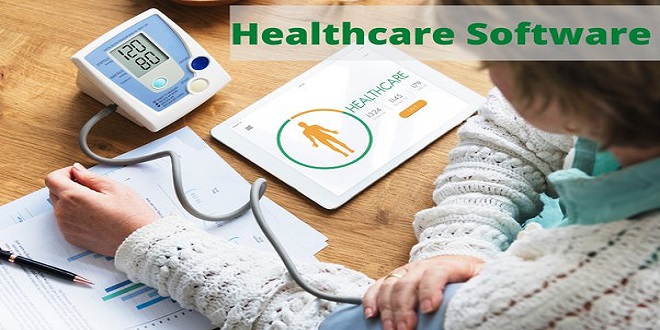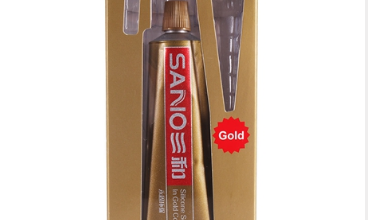Dual Diagnosis: Treating Addiction and Mental Health Together

Dual diagnosis refers to the co-occurrence of a mental health disorder and substance use disorder. Substance abuse and mental health disorders occur when an individual experiences both a mental illness and substance abuse issues simultaneously. Treating both conditions together is crucial, as they often influence each other, making recovery more complex.
Understanding the link between mental health and substance use disorder may provide deeper insights into the best approaches for treatment.
What does Dual Diagnosis Mean?
Dual diagnosis occurs when an individual has both a mental health disorder and a substance use disorder at the same time. Other names for dual diagnosis include co-occurring disorder and co-morbidity. This combination is also known as co-occurring disorders. Mental health condition and drug abuse are often interconnected, as one condition can exacerbate the other, making treatment more complex.
For example, someone struggling with depression may turn to drugs or alcohol to cope with their emotional pain, leading to dependency. Conversely, chronic substance use can contribute to the development or worsening of mental health conditions such as anxiety or depression. To achieve long-term recovery, effective treatment for dual diagnosis must address both the mental health disorder and the substance use disorder at the same time.
Common Co-occurring Disorders
Certain mental health disorders are frequently found in individuals who also struggle with substance use disorders. Some of the most common co-occurring mental health disorders include:
- Depression: Individuals may use substances to numb feelings of sadness or hopelessness.
- Anxiety Disorders: Alcohol or drugs are often used to manage overwhelming stress or anxiety.
- Bipolar Disorder: Individuals may engage in substance abuse during manic or depressive episodes.
- Post-Traumatic Stress Disorder (PTSD): Trauma survivors may turn to substances to escape painful memories or flashbacks.
- Schizophrenia: People with schizophrenia may misuse substances in an attempt to alleviate hallucinations or delusions.
These mental health conditions, when paired with substance use, can create a vicious cycle that’s difficult to break without comprehensive treatment.
Symptoms of Dual Diagnosis: What to Watch For
Identifying symptoms of dual diagnosis can be difficult because mental health disorders and substance use disorders often overlap and can obscure each other. Some common symptoms include:
- Extreme Mood Changes: Frequent shifts in mood, such as intense highs (mania) and deep lows (depression), may signal the presence of both a mental health disorder and substance use problem.
- Engaging in Risky Behaviors: Reckless actions, such as driving under the influence, unprotected sex, or criminal activity, are often associated with both substance use and mental health conditions like bipolar disorder or impulsivity related to trauma.
- Withdrawal Symptoms: Physical and emotional symptoms that occur when an individual stops using alcohol or drugs can also indicate a dual diagnosis. Symptoms like anxiety, irritability, or paranoia during withdrawal may reveal an underlying mental health disorder.
- Increased Use of Alcohol or Drugs: Escalating use of substances, particularly when done to manage emotional distress or mental health symptoms, can be a sign of co-occurring disorders.
- Difficulty Concentrating: Cognitive impairments such as trouble focusing, forgetfulness, or disorientation can be linked to both substance use and mental health conditions like depression or anxiety.
- Emotional Instability: Unpredictable emotional responses, such as sudden anger, sadness, or euphoria, can point to co-occurring disorders that affect emotional regulation.
- Signs of Mental Illness: Symptoms such as anxiety, depression, paranoia, or hallucinations may indicate the presence of an untreated mental health disorder alongside substance use.
Recognizing these symptoms early is crucial. An accurate diagnosis can lead to timely intervention, allowing individuals to receive appropriate treatment before their condition worsens. Without dual diagnosis treatment, addressing only one of the conditions often leads to incomplete recovery and increases the risk of relapse.
How Mental Health Disorders May Contribute to Substance Use

Mental health disorders may increase the risk of substance use disorders, as individuals may turn to drugs or alcohol to self-medicate. Mental health disorders such as depression, anxiety, bipolar disorder, or PTSD are often at the root of substance abuse. Common co-occurring mental health disorders include:
- Depression
- Generalized anxiety disorder (GAD)
- Post-traumatic stress disorder (PTSD)
- Bipolar disorder
Mental health disorders may contribute to substance use as individuals seek relief from overwhelming emotions. In many cases, this cycle leads to dependency and a full-blown substance use disorder. Proper dual diagnosis treatment programs are essential in addressing both issues simultaneously to achieve long-term recovery.
Common Risk Factors for Dual Diagnosis
Several risk factors can contribute to the development of dual diagnosis. Some of these risk factors that may contribute to mental health problems include:
- Genetic predisposition
- Trauma or abuse
- Early exposure to drugs or alcohol
- Stressful life events
- Family history of mental illness or substance abuse
Shared common risk factors make individuals more vulnerable to developing both mental health disorders and substance use disorders. Recognizing these risk factors help healthcare providers create targeted treatment plans.
How Common Is Dual Diagnosis?
Dual diagnosis is more common than many people realize. According to studies, a significant percentage of individuals with mental health disorders also struggle with substance use disorders. Co-occurring disorders and substance use are closely linked, and without proper treatment, the cycle can continue indefinitely.
Dual Diagnosis Treatment: A Comprehensive Approach for a Mental Health Disorder
Treating dual diagnosis—where a mental health issue and substance use disorder occur together—requires an integrated and holistic approach, may include behavioral therapy, medication, support groups, and some sort of detox. This is crucial because mental health disorders and substance use disorders are deeply intertwined, and focusing on one without addressing the other can lead to incomplete recovery or relapse. An effective dual diagnosis treatment program offers tailored interventions to address the physical, emotional, and psychological needs of individuals dealing with co-occurring disorders.

Cognitive Behavioral Therapy (CBT)
Cognitive Behavioral Therapy (CBT) is a cornerstone of dual diagnosis treatment. It focuses on recognizing and altering harmful thought patterns and behaviors that play a role in both the mental health disorder and substance use.
For example, individuals with depression may turn to alcohol or drugs to cope with feelings of hopelessness, while those with anxiety might use substances to manage overwhelming stress. Through CBT, patients learn to replace harmful coping mechanisms with healthier alternatives. CBT helps individuals become more aware of how their thoughts influence their emotions and actions, which leads to better mental health and addiction outcomes. It can also be used to help individuals manage triggers and prevent relapse.
Medication for Mental Health Problems and Drug and Alcohol Abuse
Medication management is often essential for treating dual diagnosis, as it can help manage the symptoms of the mental health disorder while supporting recovery from substance use disorder.
Medications may be prescribed to address various mental health conditions, such as:
- Antidepressants for depression
- Mood stabilizers for bipolar disorder
- Anti-anxiety medications for generalized anxiety disorder (GAD)
- Antipsychotic medications for schizophrenia or other psychotic disorders
In addition to managing mental health symptoms, certain medications are used in substance abuse treatment to reduce cravings, minimize withdrawal symptoms, or prevent relapse. For instance:
- Methadone or buprenorphine for opioid addiction
- Disulfiram or naltrexone for alcohol dependence
The use of medication must be carefully monitored by healthcare providers to ensure that both the mental health condition and the substance use disorder are treated effectively without adverse interactions.
Support Groups and Peer Support
Support groups play an important role in dual diagnosis recovery. Individuals with dual diagnoses often benefit from peer support in a group setting where they can share their experiences, challenges, and triumphs with others who understand their struggles.
Popular support groups for treatment for dual diagnosis:
- 12-Step programs like Alcoholics Anonymous (AA) or Narcotics Anonymous (NA), which provide a structured approach to recovery through peer support.
- Dual Recovery Anonymous (DRA), a specific support group designed for individuals dealing with both mental health disorders and substance use disorders.
Participation in support groups helps individuals build a sense of community, reduce feelings of isolation, and receive emotional and social support. These groups also reinforce accountability, which is essential for quitting drug use, maintaining sobriety and managing mental health issues in the long term.
Inpatient Detoxification Healthcare Providers
For individuals with severe substance use disorders or those who have been using drugs or alcohol for an extended period, inpatient detoxification may be necessary. Detox is the process of safely removing substances from the body, and it often involves withdrawal symptoms, which can range from mild discomfort to life-threatening complications, depending on the substance and the level of dependency.
Inpatient detoxification ensures that patients are medically supervised during this critical phase of treatment. Healthcare providers monitor patients 24/7 to manage withdrawal symptoms, provide medications to alleviate discomfort, and address any medical emergencies that may arise. In a dual diagnosis setting, detox is often just the first step in a comprehensive treatment program, but it’s an essential foundation for starting recovery.
Integrated Treatment at a Dual Diagnosis Treatment Center
A dual diagnosis treatment center provides a structured environment where both conditions can be addressed simultaneously. These centers offer specialized care that considers the complex relationship between mental health disorders and substance use. Integrated treatment is crucial because treating one condition without addressing the other can lead to incomplete recovery and increase the risk of relapse.
At a dual diagnosis treatment center, patients typically receive:
- Individualized treatment plans tailored to their specific needs
- Behavioral therapies such as CBT, Dialectical Behavioral Therapy (DBT), or trauma-informed therapy
- Holistic therapies such as mindfulness, meditation, or yoga to promote emotional well-being
- Ongoing medical care to manage both mental health and addiction symptoms
- Aftercare planning, including support group referrals and outpatient services to ensure continued recovery after leaving the facility
Why Dual Diagnosis Treatment Requires a Holistic Approach
Treating dual diagnosis holistically means considering the full range of an individual’s needs—physical, emotional, mental, and social. By addressing all these factors, a comprehensive treatment program can:
- Alleviate symptoms of both mental health disorders and substance use disorders
- Help individuals develop healthy coping mechanisms
- Support sustained recovery and relapse prevention
- Promote emotional and social well-being
The risk of dual diagnosis is significant, especially as mental health disorders may contribute to substance use, and substance use disorders can worsen underlying mental health conditions. A comprehensive approach to dual diagnosis treatment ensures that both conditions are managed in tandem, leading to a more successful and lasting recovery.
Dual diagnosis treatment requires a multifaceted and integrated approach to help individuals manage both their mental health and substance use disorders. Through a combination of behavioral therapy, medication, emotional and social support, and medical supervision, individuals can achieve long-term recovery. By addressing both conditions simultaneously at a dual diagnosis treatment center, individuals are given the best possible chance for success, breaking the cycle of addiction and mental illness while improving their quality of life.
The Role of Healthcare Providers in Dual Diagnosis Treatment Center
Accurate diagnosis and appropriate treatment depend heavily on experienced healthcare providers who understand the complexities of co-occurring disorders. Providers must ensure that patients receive comprehensive mental health care while managing substance use issues. A healthcare provider specializing in dual diagnosis will:
- Conduct thorough assessments
- Prescribe medication when necessary
- Provide ongoing mental health support
- Offer therapies tailored to the individual’s needs
Dual diagnosis treatment often requires collaboration between healthcare providers, therapists, and support systems to ensure a successful recovery.
Addressing the Emotional and Social Needs of Individuals Getting Treatment for a Co-Occurring Disorder
Emotional and social support is another essential component of dual diagnosis treatment. Many individuals with co-occurring disorders feel isolated, misunderstood, and stigmatized. Therapy sessions that focus on interpersonal relationships, emotional regulation, and social integration can help individuals rebuild their lives and relationships.
Family therapy is often incorporated into dual diagnosis programs to address any strain addiction and mental health issues may have caused within the family unit. Families play a critical role in the recovery process, and having their involvement can create a supportive environment for long-term success.
Treating Co-Occurring Disorders for Long-Term Recovery
The best way to treat co-occurring disorders is through a combination of therapies that address both symptoms of mental health and addiction. Dual diagnosis treatment includes behavioral therapy, medication, and support groups, all of which contribute to lasting recovery. Individuals with dual diagnoses face unique challenges, but with the right support and treatment, they can successfully manage both conditions and regain control over their lives.
In conclusion, if you or someone you know is dealing with the complex issues of mental disorders and substance use, seeking help from a dual diagnosis treatment center in MA is critical. Recovery is possible with the right approach, and dual diagnosis treatment programs are designed to address the unique needs of individuals facing these challenges.





